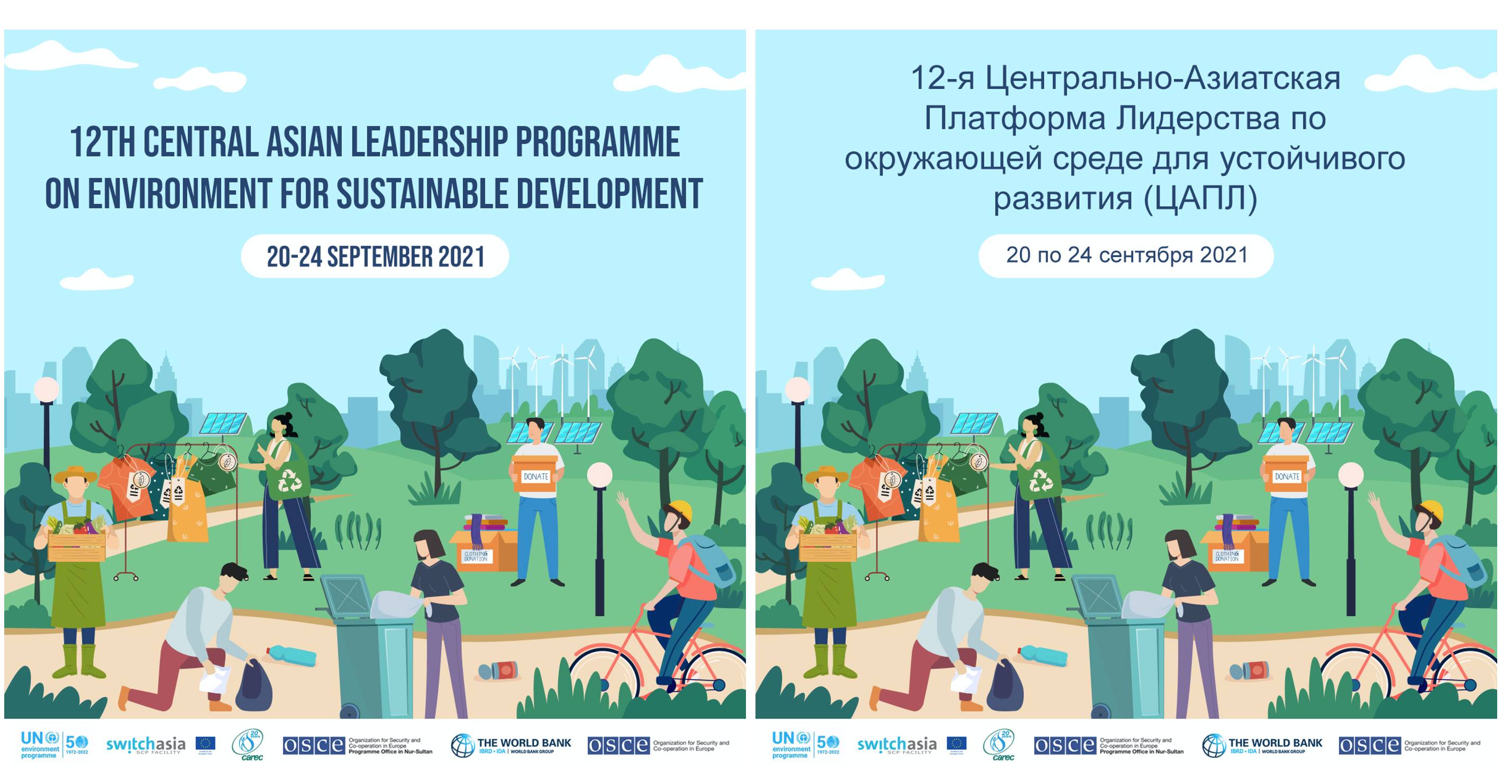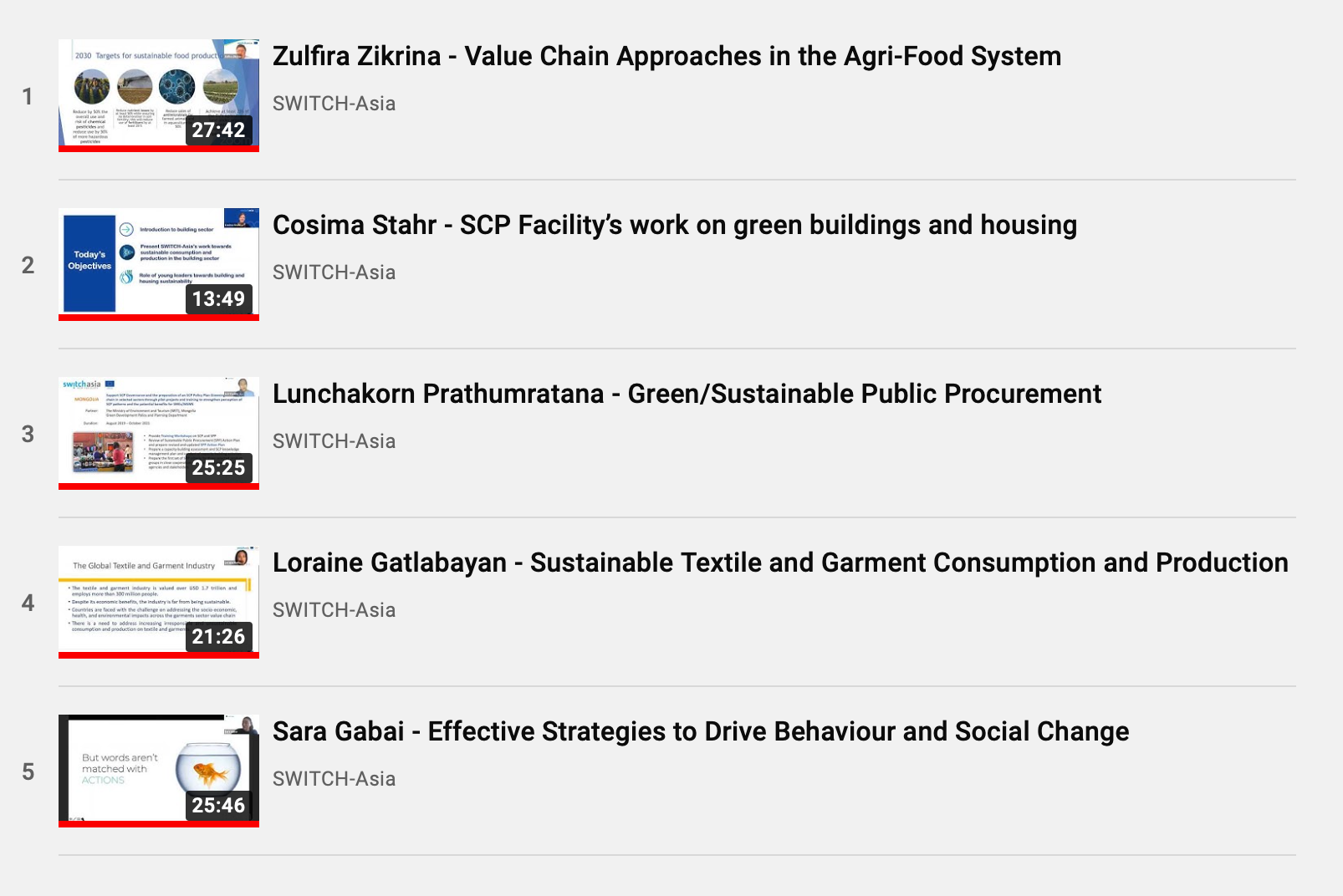
WHEN: 20-24 September 2021 PLATFORM: Online (TBC)
Background
In recent decades, socio-economic progress has had an increasingly negative impact on the environment, and the issue of responsible consumption and production has become one of the main topics on the global agenda.
The COVID-19 pandemic has exposed existing problems and the devastating consequences of irresponsible human behaviour. On the other hand, it has also enabled humanity to slow down and start thinking about the future, as well as edefine priorities and values to achieve Sustainable Consumption and Production (SCP). New opportunities for development have opened up for humanity, especially in the field of environmental protection. Environmentalists can act as agents of «green change», and approaches such as «green recovery», «building back better », and «risk-aware development» are important thematic areas that many governments and international organisations are working on.
There are opportunities to develop strategies for a deep systemic transition to a more sustainable economy, where nature and technological progress coexist in balance. Responsible Consumption and Production, Goal 12 of the 17 Sustainable Development Goals set by the UN for the period up to 2030, primarily implies:
• Efficient use of resources and energy;
• Sustainable infrastructure;
• Universal access to basic social services;
• Decent work and green jobs;
• Ensuring a better quality of life for all.
Central Asia is one of the most sensitive regions in the world to climate change. The issues of adaptation and mitigation to climate change, ensuring access to clean and safe drinking water, preserving mountainous regions, forests, steppe and desert ecosystems and biodiversity of the region are the basic priorities of the state policies in Central Asia.
The need for regional cooperation has existed since the independence of Central Asian countries until the present day. Being aware of the importance of and the need for this cooperation, the governments of five countries created the International Fund for Saving the Aral Sea (IFAS) and its institutions - ICWC and ICSD, and the Regional Environmental Centre for Central Asia (CAREC, 2001), an independent platform for regional cooperation.
With a mandate to provide assistance to countries in Central Asia in order to solve national and regional problems in the field of environmental protection, this year CAREC celebrates its 20th anniversary. Regional CAREC events planned in 2021, namely, the Central Asia Climate Change Conference (CACCC): «Regional cooperation for climate-resilient future» and the 12th Central Asia Leadership Programme on Environment for Sustainable Development (CALP): «Sustainable Consumption and Production and Circular economy policies and tools as drivers to green recovery and building forward better» are part of CAREC's 20th anniversary celebrations.
CALP is the only regular capacity-building and training programme in Central Asia that has become a recognised platform for the development of regional cooperation among youths. From 2010 to 2020, more than 330 young people from five countries of Central Asia and Afghanistan, representatives of state environmental, water management and energy sectors, non-governmental organisations, universities and environmental businesses, have been trained through the Central Asia Leadership Programme.
This year, we have the unique opportunity to discuss issues of sustainable consumption and production, circular/green economy, water and energy resources management and their significant impact on food supply and security, ecosystem services, the transition towards a low-carbon, resource-efficient and circular economy under the 12th Central Asian Leadership Program on Environment for Sustainable Development (CALP), which will be held on September 20th - 24th, 2021. Moreover, CALP stakeholders and partners will discuss the impact of the COVID-19 pandemic on the development of countries in Central Asia and Afghanistan in terms of economic recovery, as well as new challenges faced by health and education institutions.
This year, the 12th CALP will be organised by CAREC in cooperation with the European Union SWITCH-ASIA Programme, the OSCE Programme Office in Nur-Sultan, the OSCE Secretariat, the EU Delegations in Central Asia, and the World Bank. Along with CAREC, the Kazakh-German University (DKU) is a co-partner in this project.
SWITCH-Asia is the largest sustainable consumption and production (SCP) programme supported by the European Union across Asia. In line with the priorities of the European Green Deal, the program aims to promote sustainable and inclusive growth in Asia, and to support partner countries in their transition towards a low-carbon, resource-efficient and circular economy.
Representatives of the following groups will take part in the CALP 2021:
- Young environmental leaders from government agencies dealing with SCP and green development - ministries of agriculture, environment, water and energy;
- Representatives of green business;
- Civil society organizations of Central Asia and Afghanistan working in the field of SCP, green economy, resource efficient economy and circular economy.
The main objective of the 12th CALP Leadership Programme is to expose and encourage young leaders in Central Asia to learn about SCP thematic issues, at the same time contributing to the implementation of SCP policies at the national level and providing an innovative and action-oriented regional platform on SCP and the green economy. The Programme is also a platform for dialogue and knowledge exchange among youths in Central Asia, the key players in the effort to raise awareness about sustainable consumption and responsible consumer behavior among communities in Central Asia and Afghanistan.
WATCH OUR VIDEOS HERE




